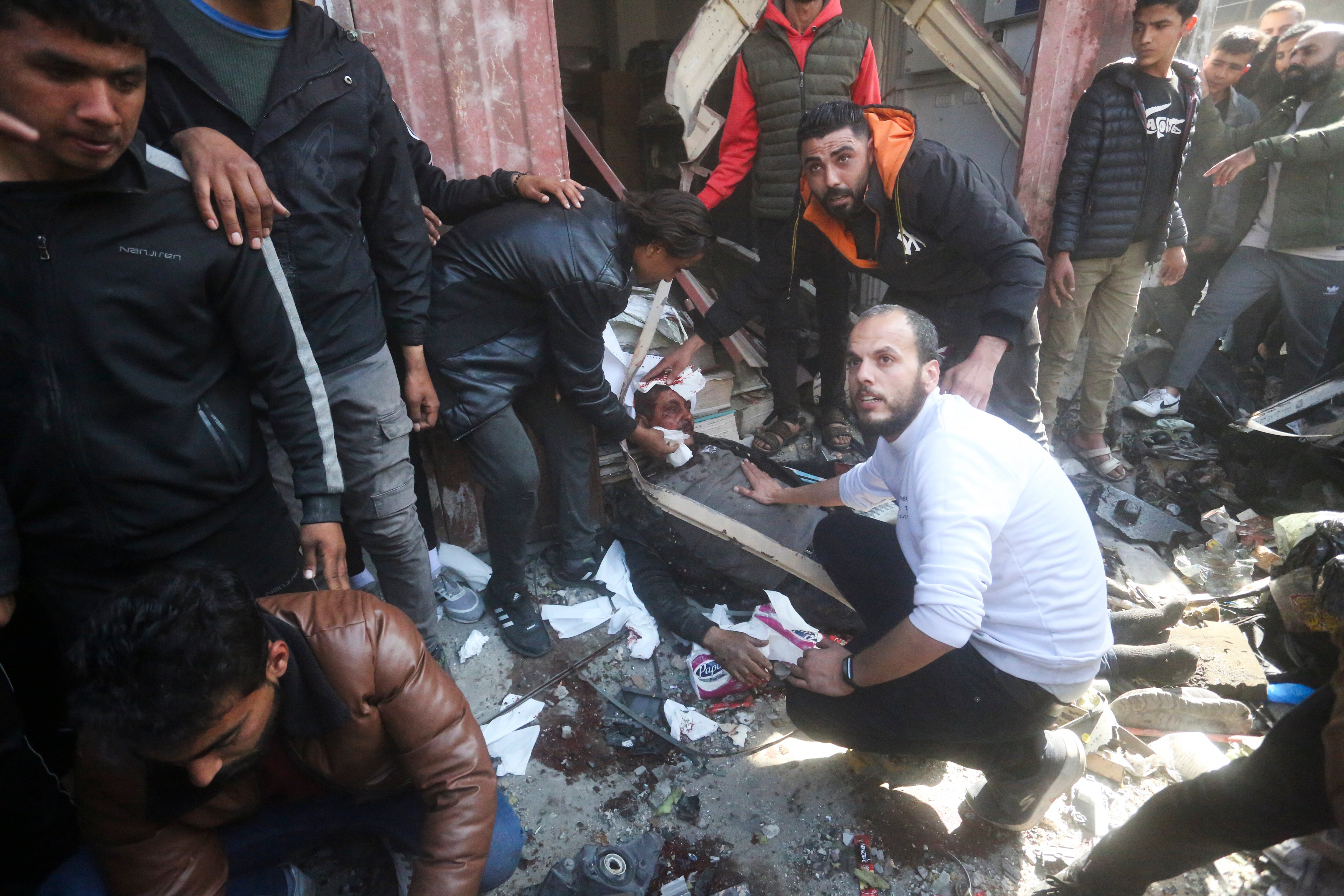Gaza man says he lost 103 relatives in Israeli bombardment
Grappling with loss of his daughters, Palestinian man says it feels ‘like I’m in a dream’
Your support helps us to tell the story
From reproductive rights to climate change to Big Tech, The Independent is on the ground when the story is developing. Whether it's investigating the financials of Elon Musk's pro-Trump PAC or producing our latest documentary, 'The A Word', which shines a light on the American women fighting for reproductive rights, we know how important it is to parse out the facts from the messaging.
At such a critical moment in US history, we need reporters on the ground. Your donation allows us to keep sending journalists to speak to both sides of the story.
The Independent is trusted by Americans across the entire political spectrum. And unlike many other quality news outlets, we choose not to lock Americans out of our reporting and analysis with paywalls. We believe quality journalism should be available to everyone, paid for by those who can afford it.
Your support makes all the difference.A Palestinian man says he has lost 103 relatives, including his three daughters, in Israel's incessant bombardment of Gaza.
Ahmad al-Ghuferi was 80km away in the occupied West Bank town of Jericho when an Israeli missile struck his family home in Gaza City on 8 December.
Mr Ahmed was on a phone call with his wife, Shireen, when a large bomb attack on his uncle's house killed his wife and three daughters.
"She knew she would die," he told the BBC. "She told me to forgive her for anything bad she might ever have done to me. I told her there was no need to say that. And that was the last call between us," Mr Ahmed added.
His mother and four of his brothers were among more than 100 people killed in the attack, with some of the bodies still trapped under the rubble. The eldest victim was a 98-year-old woman while the youngest was born just nine days before the attack, according to the survivors.
Mr Ahmed was unable to attend his children's hurried burials and is still trying to grapple with the loss. Last week he marked the youngest daughter's birthday, who would have turned two.

"My daughters are little birds to me. I feel like I'm in a dream. I still can't believe what's happened to us," he told the broadcaster.
His family had rushed to his uncle's house nearby after a missile struck the entrance, Mr Ahmed was told by his neighbours. "Fifteen minutes later, a fighter jet hit that house."
Hamid al-Ghuferi, one of Mr Ahmed's surviving relatives, told the BBC that when the strikes began, only those who ran up the hill survived.
"It was a fire-belt. There were strikes on the four houses next to ours," he said. "They were hitting a house every 10 minutes."
At least 30,000 Palestinians have been killed in Israel's months-long retaliatory attack in Gaza against Hamas militants, according to the local health ministry. The offensive has destroyed much of the coastal enclave and forced millions of people to the brink of starvation.
The Israeli offensive began following the 7 October terror attack by Hamas in southern Israel that killed 1,200 Israelis. The group also seized 253 hostages, many of whom remain in captivity.
Meanwhile, the UN has warned that an Israeli assault on Rafah in south Gaza would be "the nail in the coffin" of aid deliveries in the besieged territory.
UN secretary general Antonio Guterres said that a long-threatened, all-out offensive in Gaza’s southernmost city – where up to 1.5 million of the enclave’s 2.3 million residents are currently sheltering – would “not only be terrifying” for those inside the city but it “would put the final nail in the coffin of our aid programmes”.
The Israeli army has presented to Israel’s war cabinet its dual invasion and evacuation plan for Rafah, according to prime minister Benjamin Netanyahu’s office on Monday.
The presentation of the plan, which has not been made public, signalled Israel’s intent to push ahead with operations in the southern city, despite protests from its closest ally the US and the wider international community.
Join our commenting forum
Join thought-provoking conversations, follow other Independent readers and see their replies
Comments